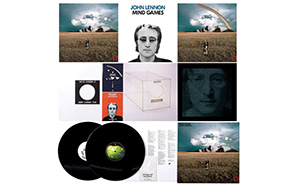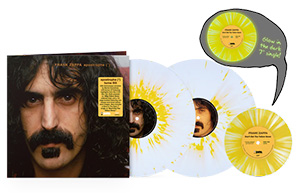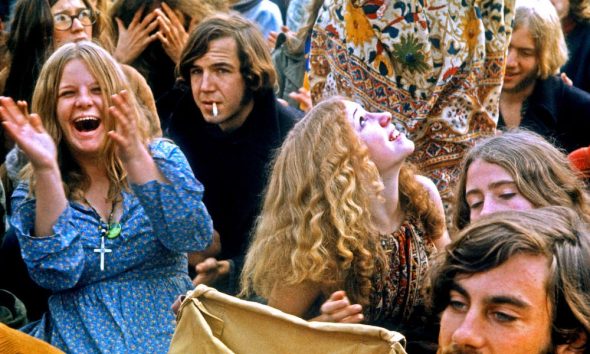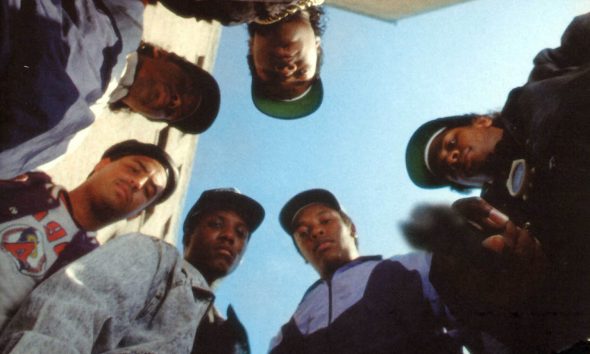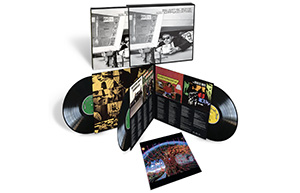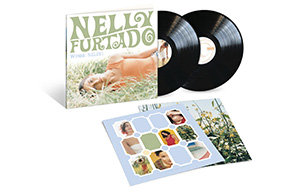‘Jazz’: How Queen Proved They Could Do Anything They Liked
Queen were aware that topping the anthems on News Of The World would take some doing, so decided on a more eclectic approach. The result was the Jazz album.
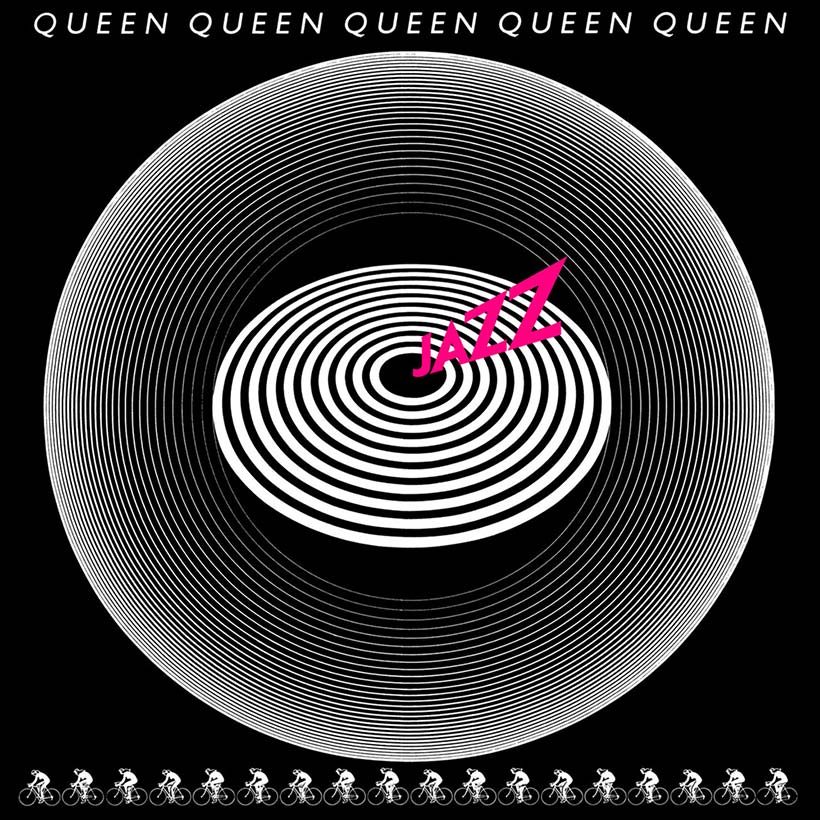
Queen continued on the second leg of their News Of The World Tour, ending with a three-night stint at the Empire Pool, Wembley – soon to be renovated and rebranded as Wembley Arena. Some thirty thousand people splashed out on tickets, at £4.25 a head, relishing the excitement of “We Will Rock You” – the slow and fast versions – and “We Are The Champions” – the natural bookends to a thirty song set that still bowed out with “Jailhouse Rock” and “God Save The Queen.”
A much-needed break allowed the band time for a summer holiday before recording sessions resumed, with Roy Thomas Baker returning to the producer’s seat, albeit for the last time. The decision to part company with Mike Stone wasn’t entirely unanimous, but Roy had just finished an album with singer Peter Straker, a close friend of Freddie Mercury’s who also had production input and financed the finished disc. This One’s On Me reignited Mercury and Baker’s relationship and soon enough, everyone fell back into the old routine.
Queen was aware that topping the anthems on News Of The World would take some doing and decided that a return to a more eclectic approach would be the way forward. Hence, perhaps, the title Jazz, one that could have been commercial suicide or downright misleading. However, Queen was now so very popular they could have come up with just about anything as a title for a seventh disc – whose ever-so-slightly jokey handle (the antithesis of everything punk or new wave) was deemed just-so. But the last thing you’ll find on Jazz is any jazz.
Listen to Jazz on Apple Music and Spotify.
In July 1978, Queen decamped to France, to the same Super Bear studio near to Nice and the agreeable beaches of the Cote d’Azur, where David Gilmour had completed his debut solo album. Later in the month, as Brian May turned 31, and Roger Taylor reached 29, the team headed to Montreux and Mountain Studios, part of the Casino Barrière de Montreux.
Freddie loved the local Jazz Festival, which is the third, and most compelling reason, for the eventual title. Freddie bought Mountain Studios on behalf of the group, a canny piece of real estate investment, and also moved himself to a flat with a view of Lake Geneva, a bolthole that he described to friends as a slice of heaven. “If you want peace of mind, come to Montreux.” In memory of Freddie Mercury’s presence in Montreux, his bronze statue has decorated the lakeside promenade since 1996; his fans keep it permanently decked in flowers.
Fred’s “Mustapha” is the album opener on Jazz, and a most unusual one at that, with a mystical, piano-driven melody and a rhythmic quasi-religious lyric that seems to encapsulate the atmosphere of a magical Arabian bazaar – though one magazine’s description of the song as an “up-tempo Hebrew rocker” is clearly wide of the mark!
Brian’s “Fat Bottomed Girls,” a deliciously smutty paean, pretty much says what it meant in the title; Mercury sings it, with May’s wholehearted chorus. Released as the taster single in October, this hard bluesy rock romp is full of fun as opposed to subtlety – it was a natural crowd-pleaser. Its popularity was helped by the infamous, some thought a scandalous, video that accompanied its double A-side partner “Bicycle Race,” featuring 65 naked models riding round Wimbledon Greyhound Stadium; the original gatefold album included a poster of said gals in their birthday suits. After the video had been made, bicycle suppliers Halfords refused to take the saddles back and insisted the band pay for replacements. On your bike!
If “FBG” was a none too po-faced ditty, Mercury’s “Jealousy” is a polar opposite –a dark examination of the sexual green-eyed monster. This was one of the singer’s most personal lyrics, with a ballad arrangement enhanced by May’s acoustic guitar and sitar-effect that was accomplished by placing piano wire under the frets to create a buzzing drone.
“Bicycle Race” was written in Nice, after Freddie watched a stage of the Tour de France, won by debutant Bernard Hinault. A more complex track than its sister piece, it features a mid-way segment where all four members of Queen are playing old-school bicycle bells. The song can be interpreted as an insight into Freddie’s state of mind in 1978, and broadens out into an internal narrative or discussion on matters of differing opinion, though the references to cocaine and the iniquities of British tax duties are plain enough. Overall it’s about self-will and the author’s lack of interest in everyday politics, with a nod back to George Harrison’s “Taxman.”
John Deacon’s “If You Can’t Beat Them” became a popular hard rocker in the band’s canon, taking a different view to Freddie’s line, with a world-weary message that examined the perils of the entertainment industry and the number of ways in which money could be squandered. It’s that mixture of cynicism and almost hysterical levity that characterizes Jazz.
Mercury’s side one closer, “Let Me Entertain You” (now, who borrowed that title?), is another self-aware dissection of the music business, a kind of biting the hand that feeds number, with a whiff of the decadence that was now commonplace for the elite rock groups as they circled the globe.
May’s “Dead On Time,” back-references his opening song on Queen’s debut album’s, “Keep Yourself Alive,” though it wasn’t played on stage in full. The fatalistic tone is banged home by the fortuitously recorded sound of a thunderbolt, taped by Brian, and credited courtesy of God, a telling moment of spirituality on an album that often seems to be about a struggle with that subject and the downside of fame.
John’s sublime “In Only Seven Days” features his expert songwriting skills and ability to tackle a romantic subject, though not his vocals since this most private member of Queen never did sing on Jazz. Brian’s “Dreamer’s Ball,” written in part as a tribute to his childhood hero Elvis Presley, who had died the previous year at the age of 42, also has a universal message of loss. It is one of the guitarist’s sweetest pieces with a touch of New Orleans’ flavored swing, maintaining the down in the South vibe.
The ubiquitous disco beat of the era shadowed Roger’s “Fun It,” a real good time number with no apparent social message, other than to get down and enjoy life, with the Syndrum signature sound – a recent addition to the percussionist’s kit. Roy Thomas Baker probably recommended the effect triggered drum to Roger, after the producer worked with The Cars’ skins specialist, David Robinson, a few months before.
Brian’s “Leaving Home Ain’t Easy” is another reminder of the rock star’s lifestyle, the ups of acclaim, balanced by downs of touring – a cycle that Queen was now locked into. But euphoria lay ahead once Freddie’s “Don’t Stop Me Now,” recorded in sunny Berres-les-Alpes, returned them to the densely textured vocal harmonies that simply jumped off the stylus and brought listeners alive. Something of a return to the older glam rock days, Mercury’s song leads from the front, both vocally and on piano; it’s a track whose gift keeps on giving.
A top ten hit in the UK in New Year 1979, the song has grown in stature ever since, as well as becoming a regular wedding day floor-filler. A hedonistic anthem writ large, as if Mercury was saying – look, I’m going to do what I like – the message held some fears for the other band members, frankly concerned at their singer’s penchant for telling everyone “Aren’t we the most preposterous group of all time, darling!” On the other hand, the enduring appeal of the sentiment couldn’t be denied. It has since become one of their best-loved songs, also a rather poignant posthumous statement about the man who wrote it. The amazing guitar solo is another reason why this vaults into many a fan’s top ten tracks.
Roger’s second composition, “More Of That Jazz,” showcases his increasing prowess on a variety of instruments, with a bizarre outro section that drops in snatches of other tunes on the album. It acts as a natural closer.
With Jazz ready to go, Queen, along with Elektra and EMI, threw one of rock’s most lavish parties. Held in New Orleans, the entertainment included – naked female mud-wrestlers, dwarfs, fire-eaters, jazz and steel bands, Zulu dancers, voodoo dancers, strippers, drag artists, and unicyclists. The party became one of the most infamous events ever thrown by a rock group.
Released on November 10, 1978, Jazz was the band’s longest album to that point. It went Platinum in the US, and their love for that country was cemented with another winter tour that took them from Dallas to Inglewood and then home to Britain in time for Christmas. British audiences wouldn’t see them for quite a while, but as usual, it was worth the wait…


